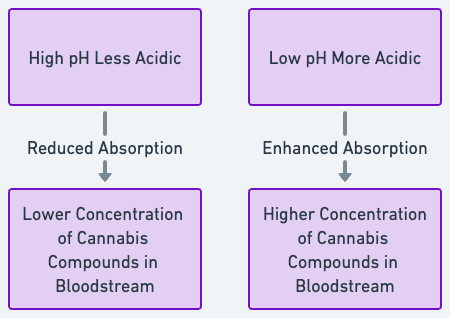
Understanding THC: From Biochemistry to Practical Implications
The Biochemical Role of THC
Tetrahydrocannabinol (THC) serves as the primary psychoactive ingredient in cannabis, eliciting the well-known “high” feeling. To grasp the complexity of THC’s effects, one must first understand the enzymatic processes involved in its metabolism.
The Origin of THC: Decarboxylation
Cannabis plants don’t produce THC naturally; instead, they create tetrahydrocannabinolic acid (THCA). The transformation of THCA into THC occurs through decarboxylation, a heat-dependent process. This conversion happens during activities like smoking or cooking cannabis.
The Two Phases of THC Metabolism
The liver primarily metabolizes THC through a two-step process:
- Phase I: Hydroxylation
THC is initially converted to 11-hydroxy-THC, a compound with psychoactive properties considered more potent than THC itself. This conversion is mainly facilitated by the enzyme cytochrome P450 (CYP450) and its specific subtypes, including CYP2C9, CYP2C19, and CYP3A4. - Phase II: Conjugation
Following hydroxylation, 11-hydroxy-THC is transformed into a more water-soluble form, 11-nor-9-carboxy-THC (THC-COOH). This non-psychoactive compound is typically what drug tests detect as evidence of cannabis use.
Influencing Factors: Individual Variability in THC Metabolism
Various factors can influence the speed and efficiency of THC metabolism:
- Genetics: Variations in CYP450 enzymes can cause some individuals to metabolize THC faster or slower than others.
- Age: With increasing age, metabolism tends to slow, potentially extending the effects of THC.
- Other Substances: Certain foods and drugs can alter the activity of CYP450 enzymes, thereby affecting THC metabolism. For instance, grapefruit contains compounds that inhibit some CYP450 enzymes.
Beyond THC: Other Cannabinoids
Cannabis contains a multitude of cannabinoids, including cannabidiol (CBD), which lacks psychoactive effects but has shown therapeutic potential. CBD can interact with enzymes involved in THC metabolism, possibly modulating THC’s effects.
Medical Applications: The Therapeutic Uses of THC
Scientific research has highlighted potential benefits of THC, such as:
- Pain relief
- Alleviating nausea and vomiting during chemotherapy
- Appetite stimulation for HIV/AIDS-related weight loss
- Relief from muscle spasticity in conditions like multiple sclerosis
Importance of Enzymatic Role in THC Metabolism
A comprehensive understanding of THC metabolism is critical for everyone, from researchers and medical professionals to users and law enforcement agencies. Variability in metabolic rates can have implications for medical dosing, legal ramifications related to impaired driving, and drug testing procedures.
Understanding the enzymatic underpinnings of THC’s effects can contribute to its safer use and may help maximize its therapeutic potential.
📗 Note: The diagram’s your first sip of a milkshake; the book’s the cherry on top. Sip it up here 📗

Summary Notes
Navigating the Complex Interplay Between Stomach pH and Cannabis Edibles Absorption
The stomach’s pH level plays a significant role in the absorption and metabolism of cannabinoids from edibles, affecting their efficacy and the onset of effects. Variations in gastric acidity, influenced by diet, lifestyle, and medications like antacids or acid-suppressive drugs, can alter the bioavailability of THC, CBD, and other cannabinoids, leading to variability in patient and consumer experiences.
Understanding how stomach pH impacts the pharmacokinetics of cannabis edibles is crucial for optimizing therapeutic outcomes, particularly for medical cannabis patients who may require consistent dosing and predictable effects. Research and clinical studies focus on assessing the influence of
gastric acidity on cannabinoid delivery, aiming to develop strategies and formulations that can either mitigate or leverage this impact to enhance cannabinoid absorption and efficacy.
Safety considerations are paramount, especially when advising patients on consuming edibles in conjunction with medications that alter stomach acidity. Personalized approaches to cannabis consumption, taking into account individual differences in gastric pH and its potential effects on cannabinoid metabolism, are emerging as vital for maximizing the benefits of edible cannabis products.
As the field evolves, education for both patients and healthcare providers on the interplay between stomach pH and cannabis edibles absorption becomes increasingly important. Future research directions include exploring innovative edible formulations that are less dependent on stomach pH for effective cannabinoid release and absorption, as well as advances in technology for more precise measurement of absorption efficacy in different gastric environments.
Understanding the complex relationship between stomach pH and the absorption of cannabis edibles is essential for ensuring safe, effective, and predictable outcomes for both recreational consumers and medical cannabis patients, guiding the development of next-generation cannabis edible products tailored to meet diverse needs and preferences.

